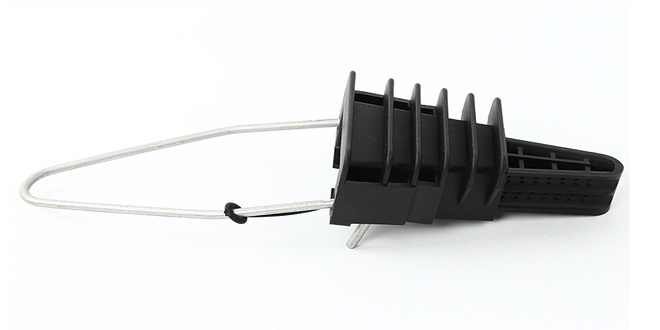Scalp Care Routines for Flakiness Prevention and Management

The health of our hair is often reflective of the condition of our scalp. A flaky, dry scalp can not only be aesthetically bothersome but may also lead to discomfort and more severe issues if left unaddressed. In order to effectively combat flakiness, it is crucial to understand the underlying causes and implement targeted scalp care routines.
This article delves into the importance of learning more about flaky dry scalps and offers comprehensive insights into effective prevention and management strategies.
The Causes of Flaky Dry Scalps
Flaky dry scalps are a common concern that can be attributed to various factors, ranging from environmental conditions to underlying skin conditions. Understanding the causes of flaky dry scalps is crucial for effective prevention and management. In this section, we will explore some of the primary contributors to this condition.
1. Lack of Moisture
One of the most common causes of flaky dry scalps is a lack of moisture. The scalp, like the rest of the skin, requires adequate hydration to maintain its health. When the scalp becomes dry, it can lead to flakiness and irritation. Factors such as harsh weather conditions, low humidity, and excessive exposure to heated environments can contribute to moisture loss, exacerbating the issue.
2. Seborrheic Dermatitis
Seborrheic dermatitis is a chronic skin condition that often affects areas rich in oil glands, including the scalp. It is characterized by redness, itching, and flaky skin. When seborrheic dermatitis targets the scalp, it can result in dandruff and flakiness. The exact cause of seborrheic dermatitis is not fully understood, but factors like genetics, yeast overgrowth, and hormonal changes may play a role.
3. Psoriasis
Psoriasis is an autoimmune condition that accelerates the skin’s life cycle, causing cells to build up rapidly on the surface. When psoriasis affects the scalp, it can lead to red patches covered with silvery scales, causing flakiness. Genetics and environmental factors are believed to contribute to the development of psoriasis, and its presence can vary in severity.
4. Malassezia Overgrowth
Malassezia is a naturally occurring yeast-like fungus found on the skin, including the scalp. While it is generally harmless, an overgrowth of Malassezia can contribute to scalp issues. This overgrowth is often associated with dandruff, leading to flakiness. Factors such as hormonal changes, stress, and immune system issues can contribute to Malassezia overactivity.
5. Fungal Infections
In some cases, flaky dry scalps may result from fungal infections. These infections can be caused by various fungi, with symptoms including itching, redness, and flaking. Individuals with compromised immune systems, excessive sweating, or a history of skin infections may be more susceptible to fungal scalp issues.
6. Harsh Hair Care Products
The use of harsh or inappropriate hair care products can strip the scalp of its natural oils, leading to dryness and flakiness. Shampoos containing sulfates, excessive use of styling products, and exposure to harsh chemicals can disrupt the scalp’s natural balance and contribute to flaky skin.
7. Allergies and Sensitivities
Some individuals may develop flaky dry scalps as a result of allergies or sensitivities to certain ingredients in hair care products. Common allergens include fragrances, preservatives, and dyes. Identifying and avoiding these allergens can be crucial in preventing ongoing scalp issues.
Tailoring scalp care routines to target the specific underlying factors contributing to flakiness is essential. Additionally, consulting with a dermatologist can provide valuable insights into the root cause of the issue, leading to personalized and effective treatment strategies. Whether through hydration, medicated shampoos, or lifestyle adjustments, addressing the causes of flaky dry scalps can pave the way for a healthier and more comfortable scalp.
Scalp Care Routines for Flakiness Prevention and Management
Here are some effective scalp care routines to prevent and manage flakiness
1. Hydration is Key
Proper hydration is fundamental to scalp health. Dryness is a common cause of flakiness, so maintaining adequate moisture is crucial. Scalp Massage with OilsRegularly massaging the scalp with nourishing oils such as coconut oil, jojoba oil, or olive oil can help replenish moisture and soothe dryness.
2. Gentle Cleansing
Harsh shampoos and frequent washing can strip the scalp of its natural oils, exacerbating dryness. Choose Mild ShampoosOpt for sulfate-free and mild shampoos that cleanse without over-drying. Consider washing your hair every 2-3 days to maintain a balance.
3. Anti-Dandruff Shampoos
Flakiness is often associated with dandruff, which can be caused by various factors, including fungal overgrowth. Use Medicated ShampoosIncorporate anti-dandruff shampoos containing ingredients like ketoconazole, selenium sulfide, or zinc pyrithione into your routine. These ingredients target the root causes of flakiness.
4. Scalp Exfoliation
Exfoliating the scalp helps remove dead skin cells and prevents the buildup that leads to flakiness. Use Scalp ScrubsConsider using a gentle scalp scrub once a week to exfoliate and promote a healthier scalp environment.
5. Moisturizing Masks
Deep conditioning masks can provide intense hydration, addressing dryness and flakiness.
Apply Moisturizing MasksUse hair masks with ingredients like shea butter, aloe vera, or hyaluronic acid to deeply moisturize the scalp and hair.
6. Avoiding Heat and Styling Damage
Excessive heat styling and chemical treatments can contribute to scalp dryness and flakiness. Limit Heat StylingMinimize the use of heated styling tools and opt for protective hairstyles to reduce stress on the scalp.
7. Balanced Diet
Nutrient deficiencies can impact scalp health. A balanced diet supports overall well-being, including the health of your scalp. Incorporate Omega-3 Fatty AcidsFoods rich in omega-3 fatty acids, such as fish, flaxseeds, and walnuts, can contribute to a healthier scalp.
8. Consulting a Dermatologist
If flakiness persists despite home care, seeking professional advice is crucial for an accurate diagnosis and targeted treatment. This is also the case for those interested to learn more about flaky dry scalps. A dermatologist can identify underlying skin conditions and recommend prescription-strength treatments if necessary.
Conclusion
In conclusion, maintaining a healthy scalp is integral to overall hair health, and understanding flaky dry scalps is the first step towards effective prevention and management. By learning more about the causes and implementing targeted scalp care routines, individuals can enjoy a flake-free, comfortable scalp. Whether through hydration, gentle cleansing, or consulting with a dermatologist, taking proactive measures ensures that flakiness becomes a thing of the past. So, embrace the knowledge about flaky dry scalps, tailor your scalp care routine accordingly, and let your hair shine with vitality.





